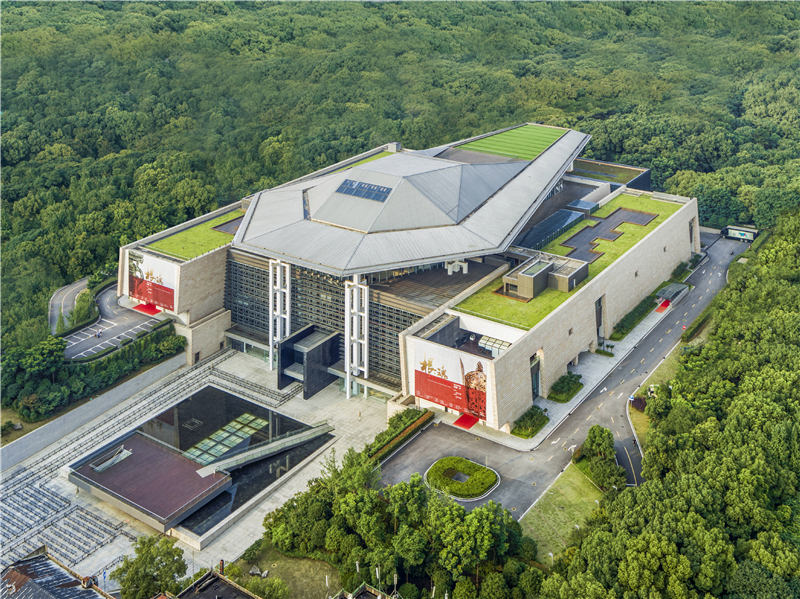Chinese Name: 湖南省博物馆 Pronunciation: hú nán shěng bó wù guǎn
Building Time: 1956
Exhibition Area: About 27,265 square meters
Popular Activities: Various of exhibitions
Suggested Visiting Hours: 1-2 Hours
Best Visiting Time: Any time of the year
Address: No.50, Dongfeng Road, Kaifu District, Changsha, Hunan Province
Building Function: Since the establishment of the museum, Hunan Museum was established for the protection and demonstration of precious cultural relics
Admission Ticket Fare: Free(The museum is free to the public except for some special exhibitions.Passports are required for expats. Recommended to make an appointment on the official website of Hunan Museum (humuseum.com) to avoid possible long lines.Please get a free ticket with passport at the Ticket Center first for entry.)
| Opening Hours | 9:00-17:00 (last entry at 16:00) |
| Park Gate | Tuesday to Sunday |
| Ticket Office Opening Hours | 9:00-16:00 |
| Closing Time | 17:00 |
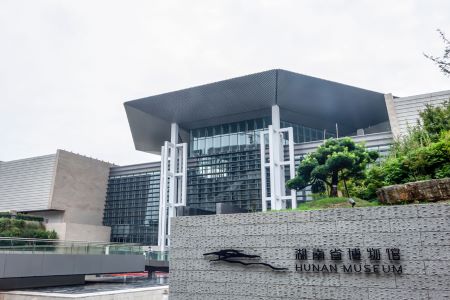
Hunan Museum, one of the first batch of national-level museums in Hunan, is founded in 1897, Qing Dynasty. It was entitled to one of the first eight National Foremost Museums co-constructed by central and local governments for its huge historical and artistic value in 2009.
According to the official website of the museum in April 2020, the museum has an exhibition area of 27,000 square meters and a collection of more than 180,000 pieces of cultural relics. It is a marvelous place for tourists to visit cultural relics unearthed like the Mawangdui Han Tombs of Han Dynasty (221 BC- AD 220), bronze wares of the Shang and Zhou dynasties (c. 16th century - 256 BC), pottery and porcelain wares, paintings and calligraphic works of ancient China, and many modern and contemporary exhibitions.
The Hunan Museum has two permanent exhibitions and four themed exhibitions utilizing VR technology. The two permanent exhibitions are The Mawangdui Han Dynasty Tombs in Changsha and Hunanese. Hunanese is an exhibition of Hunan History and Culture. The four themed exhibitions cover the themes of bronze wares, ceramics, calligraphies and paintings, and crafts.
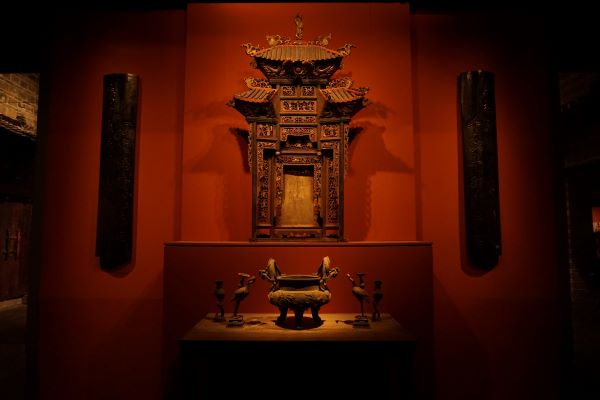
In 1897, following the pattern of western museum, the Chenzhou Society set up the Chenzhou Society Museum for the enlightenment of Chinese people. With the failure of the Hundred Days’ Reform, the museum was closed by the rulers of Qing Dynasty.
In 1904 the museum was renamed as Hunan Library and Education Museum and the main function of this museum was to display manikins and animal models. In 1930 the museum was destroyed in the war, and had not been rebuilt until 1956.
In 1972, archaeologists discovered a tomb of Han Dynasty (221 BC- AD 220) in Mawangdui, which was located in the eastern suburb of Changsha. The excavation of three graves in Mawangdui from 1972 to 1974 was not only one of the major archaeological events in China and the world in the 20th century, but also of particular significance to the development of the Hunan Museum.
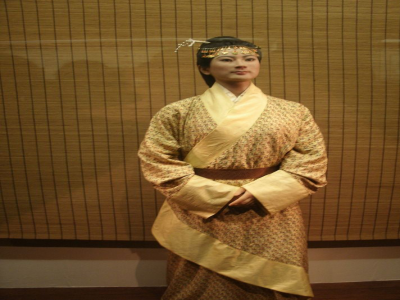
In 1972, while the archaeologists opened the casket of lady Xin Zhui, a perfect preserved mummified body was found. With the skin in good condition, it was hard to believe that she had been in the tomb for two thousand years. When the scientists injected the antiseptic into her body, they found that blood vessels of the mummified lady could still bulge. She was the wife of the Duke Li Cang in Western Han Danasty(202BC-AD2), she was the lady Xin Zhui, a wonder of ancient mummified technology. Please remember no photography is allowed to be taken near the lady Xin Zhui.
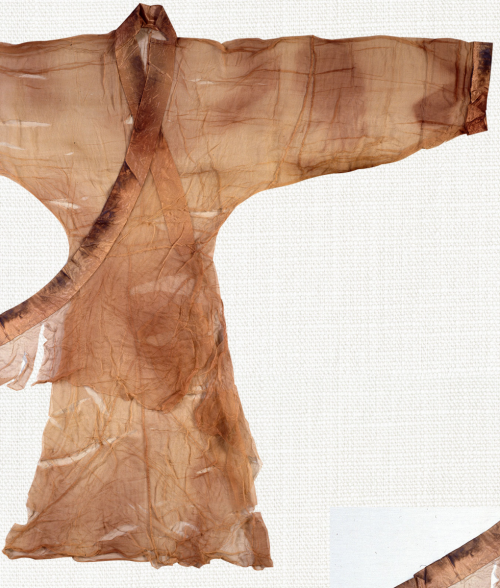
There are two plain unlined gauze gowns burned with lady Xin Zhui, which are described as “thin as a wing of cicada” and “light as smoke”. The raw material for making this gown is the plain unlined gauze with square holes and level patterns. According to the measurement, the gauze is about 2.6 square meters. The coat length of the gown is 128 cm, the sleeve is 195 cm long, the cuff is 29 cm wide, the waistline is 48 cm, and the width of the bottom hem is 49 cm. The gown is only about 48g and the average weight of each square meter is only 12-13g. As the representative work of Han weaving industry and the pride of Han culture, this gown shows the superb weaving technology of that time.
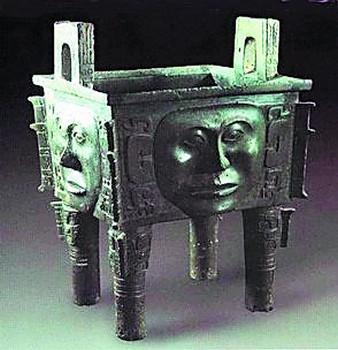
Bronze Ding with Human-mask Design
Ding is a sort of food container specially for nobles in ancient China. Excavated at Huangcai town, Ningxiang county, Hunan Province, this bronze ding is the only ding with the design of a human face ever found in China. With the color of dark green, the bronze is in the shape of a rectangle and its top is a bit larger than its bottom.
Enter from the Gate of the Museum→ Academic Auditorium→ Temporary Exhibition 1→Temporary Exhibition2→VR Experience Area→ Hunanese Exhibition→ Mawangdui Exhibition
West Gate: Take bus 3, 112, 113, 131, 136, 146, 150, 203, 222, 358, 367 or 901 and get off at Hunan Museum.
By Subway
No suitable metro line arrive to Hunan Museum.
Chinese: 请带我去湖南省博物馆。English: Please take me to the Hunan Museum.
If you go to the Hunan Museum from the Changsha Railway Station, it takes about 20 minutes (14 yuan).
If you go to the Hunan Museum from the Changsha South Railway Station, it takes about 40 minutes (40 yuan).
If you go to the Hunan Museum from the Changsha Huanghua International Airport, it takes about 50 minutes (80 yuan).
